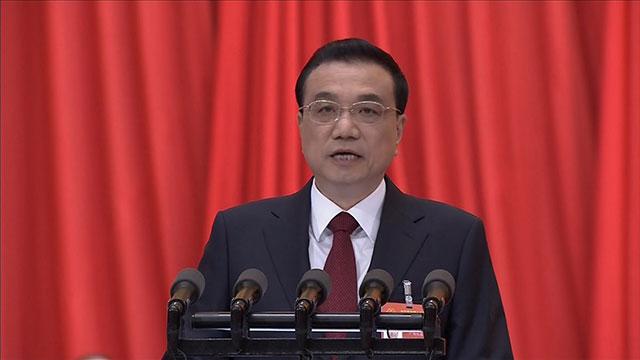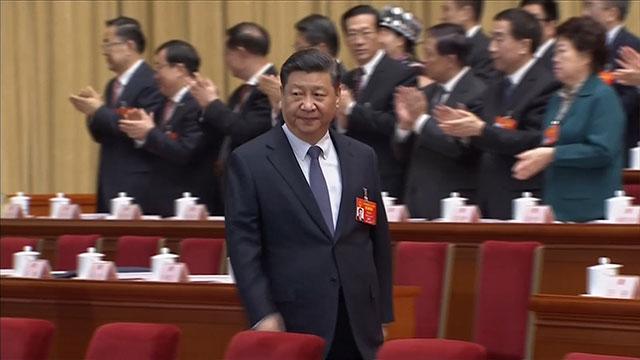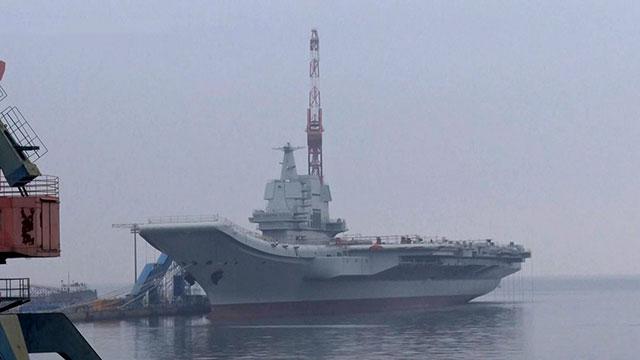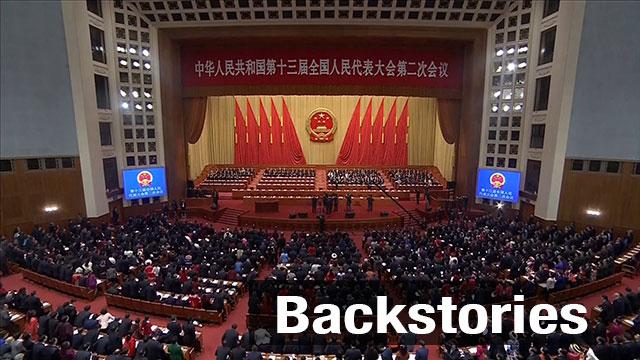Economic growth
Heading into the Congress, attention was focused on the growth target that Communist Party leaders would set for the economy. They set it at 6.0 to 6.5 percent for the year, a drop from 2018, indicating a business slowdown.
"China faces a complicated and challenging domestic and international environment of a kind rarely seen in many years." These were the words of Premier Li Keqiang at the opening session of the Congress on March 5th. The grim language came at the very start of his speech and indicates that the Communist Party views 2019 as a crucial year in its leadership. "We must be fully prepared for a tough struggle," Li added.

Measures to support the economy
The Congress is expected to rubber stamp a number of economic policies.
- Tax reform: cutting nearly two trillion yuan (298 billion dollars) in taxes and social security fees for companies.
- Infrastructure investment: 2.15 trillion yuan (320 billion dollars) of special local government bonds will be issued, up about 60% from last year.
- Increasing employment: 100 billion yuan (15 billion dollars) to provide training for over 15 million people to upgrade their skills.
This last measure seems the most significant, as Li has said he will aggressively pursue an employment-first policy. The government believes the availability of jobs is crucial to maintaining social stability.
Party leaders also set a deficit target of 2.8 percent of GDP. This is up from last year, and reflects lower tax revenue and higher spending.
The current state
The Chinese economy is drastically different from the one that was discussed at last year's Congress.
Since the 2008 financial crisis, China has been investing massively in infrastructure and public works to shore up the economy. As a result, public and private debt has reached 2.5 times the size of the country's GDP. This led party leadership at last year's Congress to accept an economic slowdown in order to reduce debt. However, the country's unexpected trade friction with the US has made things worse.
Experts say China will need to pull off a tough balancing act in order to steer the economy in the right direction. They say in the short term, the country has to ease credit conditions to support growth. But for long term stability, it has to reduce financial risks.
The experts also warn that any possible monetary easing would prolong investment in under-performing state-owned companies, only delaying needed structural reforms.
Easing US tensions
Li also made the unusual move of mentioning the United States by name, saying the trade friction is having a negative effect on business activities and the markets.
"China will continue to promote trade negotiations with the US," he said. "China is committed to mutually beneficial cooperation, win-win development, and settling trade disputes through discussion as equals. We faithfully honor our commitments"
Li did not specifically mention the "Made in China 2025" initiative, a plan aimed at transforming the country into the world's leading manufacturer. It has been mentioned in addresses at Congresses past.
Li also stressed that China will strengthen efforts to protect the rights and interests of foreign companies. The Congress is expected to pass a bill banning "administrative measures" from forcing foreign firms to transfer key technology to domestic companies. This is a practice the country has come under fire from abroad for. This response, the new law being made and passed in about three months, is an unusually swift response for China.
These announcements were likely made with the US in mind. Washington sees this practice and the overall "Made in China 2025" plan as threats to its dominance in technology.
Resolution in sight?
But in the same speech, Li said "protectionism and unilateralism are mounting" in the global economy. This seemed a barb directed at US trade policy. The Premier added, "We are resolute in safeguarding our lawful rights and interests."
There are some issues, such as the trade imbalance and intellectual property rights, that the two sides may be able to reach an agreement on. But sticking points remain.
The US is demanding that China make structural reforms in several areas, such as ending the favorable treatment of state-run firms, which China seems unwilling to compromise on.
President Xi Jinping, who abolished the presidential term limit last year, is facing a serious test just as he concentrates power into his own hands. If the economy continues to lose steam, the Chinese people could get frustrated and start directing criticism toward him. Therefore, breaking the deadlock in trade talks with the US is the main task at hand for Xi and the Chinese leadership.

Military development
The Chinese government is proposing to increase defense spending in 2019 by 7.5 percent from last year, to nearly 1.2 trillion yuan (177 billion dollars).
As part of Xi's stated goal of making the Chinese military world-class, the country is producing domestic aircraft carriers and introducing state-of-the-art fighter jets. It's also said to be developing hypersonic weapons that can bypass US missile defense systems, and embracing Artificial Intelligence.

Beijing has also continued to build up its military presence in the contested waters of the South China Sea. And it has established its first overseas military supply base in Djibouti, on the Horn of Africa.
This is in part why China now has the second largest defense budget in the world behind the United States. And this rapid growth in military clout has caused concern over the country's expanding influence in the Asia-Pacific region and beyond.
Some experts are warning that other countries should keep an eye on China's military expenditure.
"To build a military that can rival the US by 2050, the weapons budget must have ballooned," says Bonji Ohara, Senior Fellow of the Sasakawa Peace Foundation. "But in comparison, the growth in defense spending is rather small. This indicates that the imported weapons costs may not have been included in the military budget."
Ohara says this kind of vagueness is common in the budget, and is why other countries should demand a level of transparency from China.

